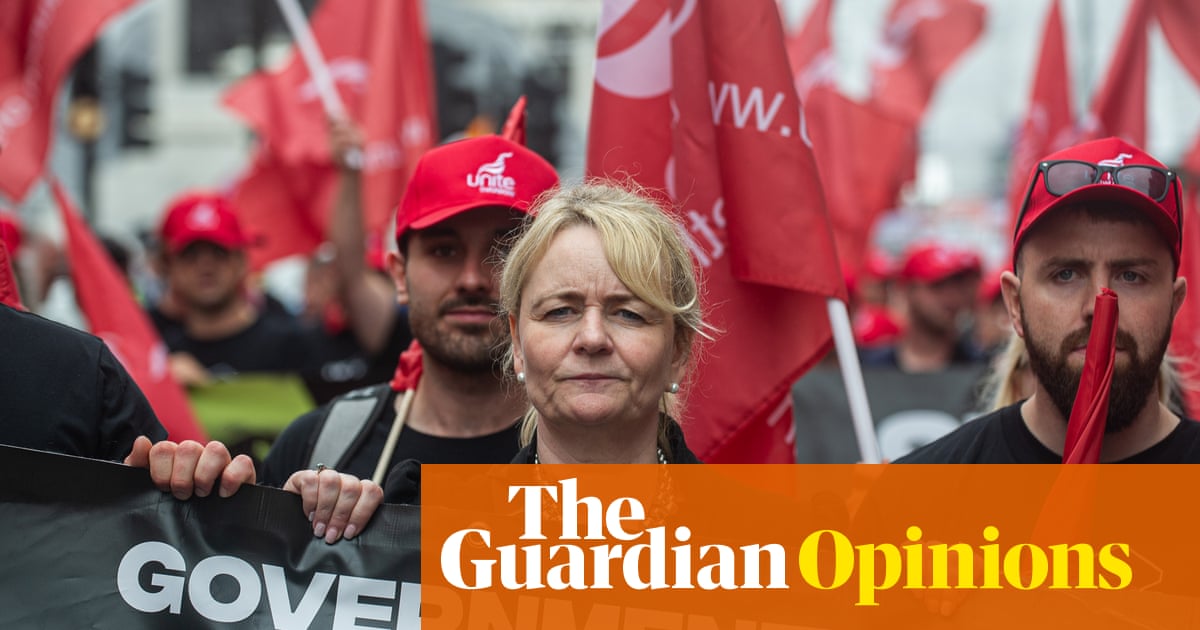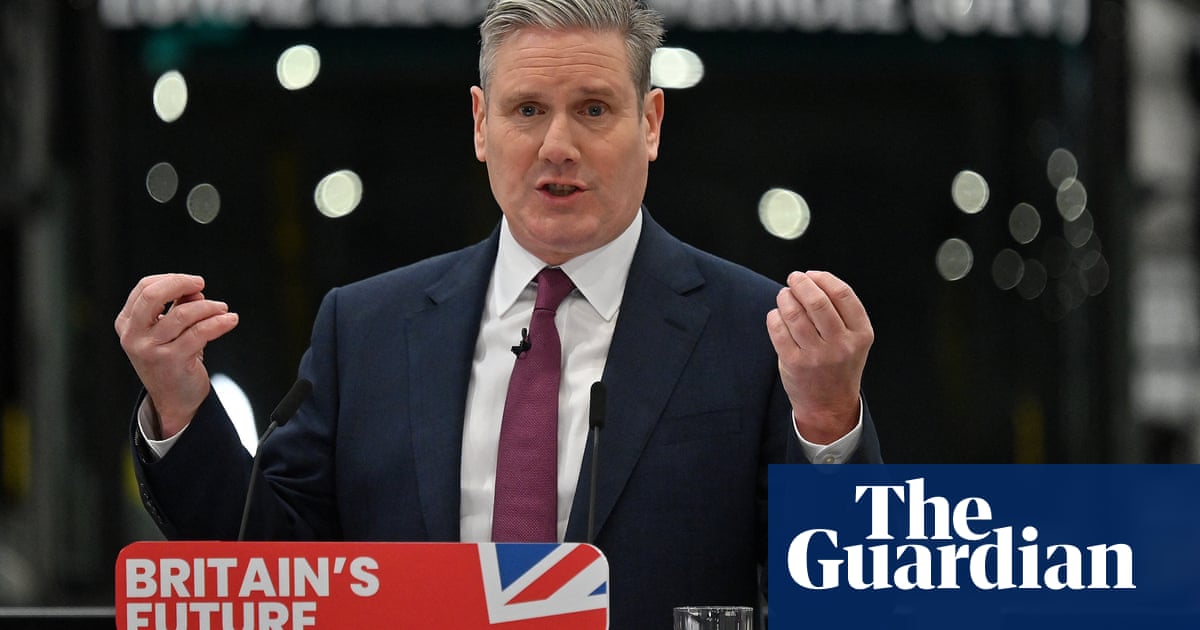
rofound fractures and divides in society can remain deliberately hidden only for so long: sudden dramatic events act like flares, making them impossible to ignore. The Meghan and Prince Harry revelations are just the latest to light up a polarised nation. A superficial reading of snap polling suggests the public has sided with the monarchy over the Sussexes: but the underlying data reveals an ink-blot test, with younger and older Britons casting their eyes over the same episode and seeing something completely different.
For those under 25, sympathy lies decisively with Harry and Meghan, who they overwhelmingly believe have been treated unfairly by our national figureheads; for those over 65, the findings reveal the absolute opposite. Here is just one illustration of an undeniable truth: that Britain’s generations occupy completely different political and moral universes, to a degree that seems without observable precedent in our modern history.
The so-called “culture wars” in the United States have long encompassed fights over abortion and gay rights, and church versus state battles, as well as the clash between white Americans antagonised by the gains of the civil rights movement – some so much so they will vote against their rational economic interests – and Black citizens and their allies. In Britain, it primarily takes the form of a generational clash that divides not just the nation, but progressive politics, too.
For the left, generational politics is not just an uncomfortable phenomenon. It can be positively poisonous, because the very foundation of our politics is that the cleavage that really matters in society is who has wealth and power, and who does not; who has to work in order to survive, and who profits from that labour. Generations as categories seem too unstable and contradictory to be useful, in any case. How much do the 1.9 million pensioners in poverty have in common with the one in five pensioners who are millionaires? How can two 25-year-olds, one a working-class Black supermarket worker, the other a white Old Etonian with a trust fund and a mortgage deposit, be lumped together? There are Britons over 65 who believe in the revolutionary overthrow of capitalism, while some of the most stridently rightwing commentators in Britain are significantly younger than me. But there is no question that profoundly contrasting social attitudes have fused with economic realities to, overall, create a generational chasm.
The prisms through which we see the world and interpret the events around us are formed, after all, by our lived experiences. Why would younger Britons side so decisively with Meghan over the institution of monarchy? For a start, they are more likely to be people of colour with their own personal experiences of racism, and to have educated their young white peers. Another factor is patriotism: support for the monarchy has long been integrated into an official understanding of what it is to love your country. But while older Britons report solidly high levels of patriotism, in polls far fewer younger Britons appear to do so. Is this really surprising? For younger Britons handed a life of economic insecurity and stagnating living standards, more question marks inevitably hang over pride in country.
Some will respond: plus ça change, radicalism has always been an affliction of young people until the brutal realities of the University of Life strips away youthful naiveties. But as studies such as Keir Milburn’s Generation Left uncover, this is a new phenomenon. In the 2019 general election, Labour enjoyed a 43-point lead among voters aged between 18 and 24, but the Tories won in a rout, propelled in part by a formidable 47-point lead among pensioners. In contrast, when Margaret Thatcher won her 1983 landslide election, she had a decisive nine-point lead among younger Britons.
In large part, generation has intersected with class. Homeownership has soared among older Britons – pensioners own around half of homeowners’ housing wealth – while collapsing among younger people who have been driven into the insecure private rented sector. While social democracy has rightly been preserved for older generations through the triple lock in pensions, the lot of many of Britain’s young – whether they’re saddled with university debt or not – is insecure work, a decimated social security system and slashed public services.
That economic insecurity fuses with progressive social values: here is a generation whose attitudes have been forged by decades of struggle by women and minorities. While 81% of baby boomers report being exclusively attracted to the opposite sex, that falls to 54% among Generation Z, or 18- to 24-year-olds. While younger people – particularly younger women – support trans rights, that’s not so for their grandparents’ generation. The only age group in which a majority of people supported the direct action to remove slaver Edward Colston’s statue in Bristol last year were the under-25s, speaking to a significantly greater sensitivity to questions of racial justice.
That younger people increasingly stridently assert their values and challenge the cultural norms of an establishment dominated by older Britons has led to moral panic. Talk of “snowflakes”, “woke” intolerance and “cancel culture” reflects a fear, and sometimes loathing, of younger Britons: a sense that they threaten to trash the established order, that their repudiation of intolerant attitudes towards minorities amounts to a Stalinist purge of public life. Even though most newspapers reflect the sensibilities of conservative older voters, any concessions to the moral outlooks or social demands of younger Britons – however superficial – cause terror among an insecure old order. It is hard to not to interpret the establishment of GB News – whose chairman has complained that “the direction of news debate in Britain is increasingly woke” – as an attempt to build higher walls to stave off the rising tide of a younger generation.
These represent divisions on the left, too: polling that shows young Labour voters would decisively prefer Jeremy Corbyn to Keir Starmer as Labour leader, unlike their older peers, is hardly unsurprising. This septuagenarian and his politics always had greater appeal among a disenfranchised youth. Starmerism is, in part, a reassertion of the dominance of Generation X – far more wedded to Blairite-style Third Way politics – in Labour’s electoral coalition.
All of this represents a serious challenge for progressive politics. Older, white, affluent Britons are of course the most likely to vote, and the Conservatives are keen to rig the electoral system further in their favour. Can any Labour leader successfully peel off enough economically secure, socially conservative older voters without alienating their younger supporters in order to build an electoral coalition? That question remains unanswered. But as the response to Meghan underlines, a seismic rift has opened up between the generations: it is only likely to widen further.












